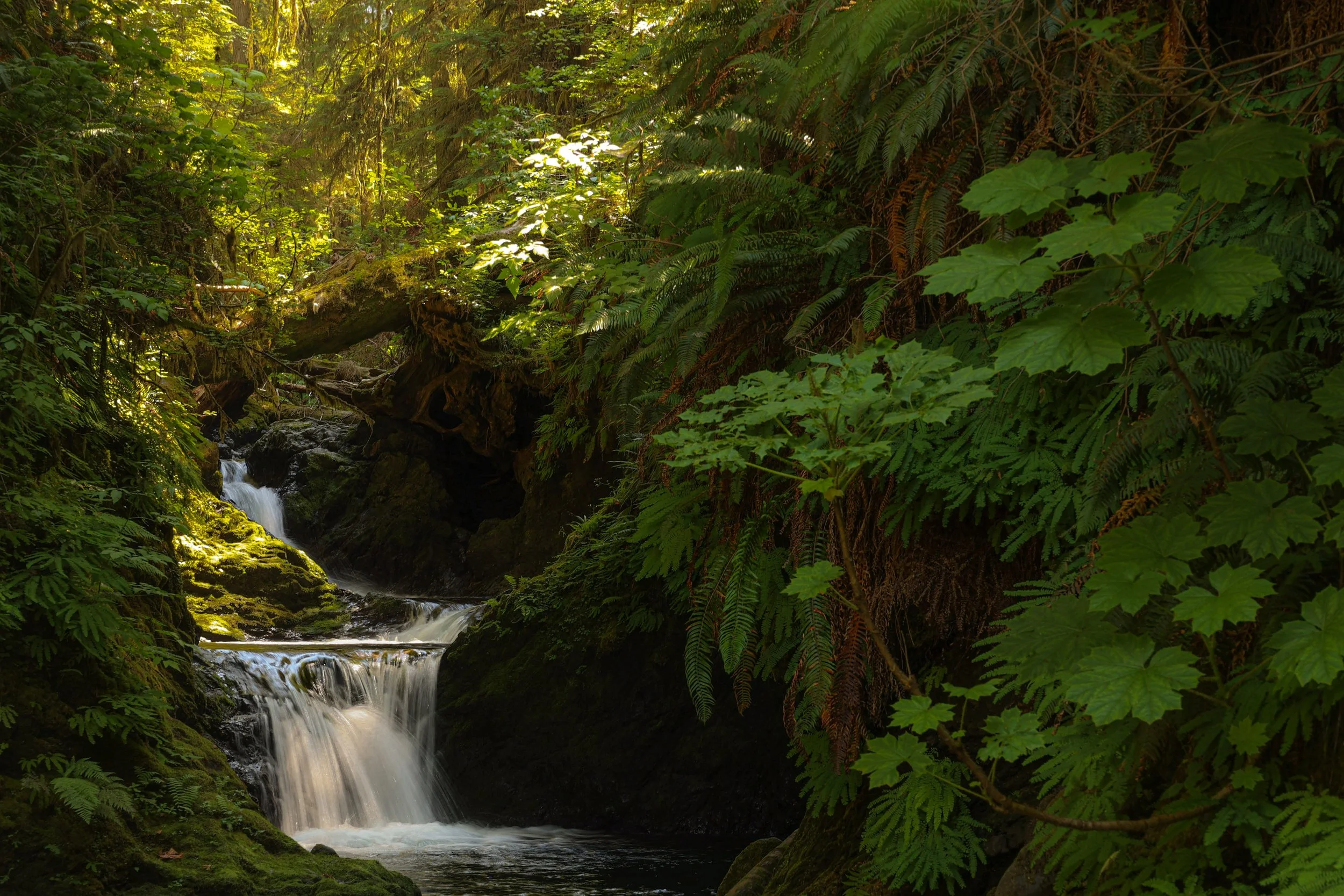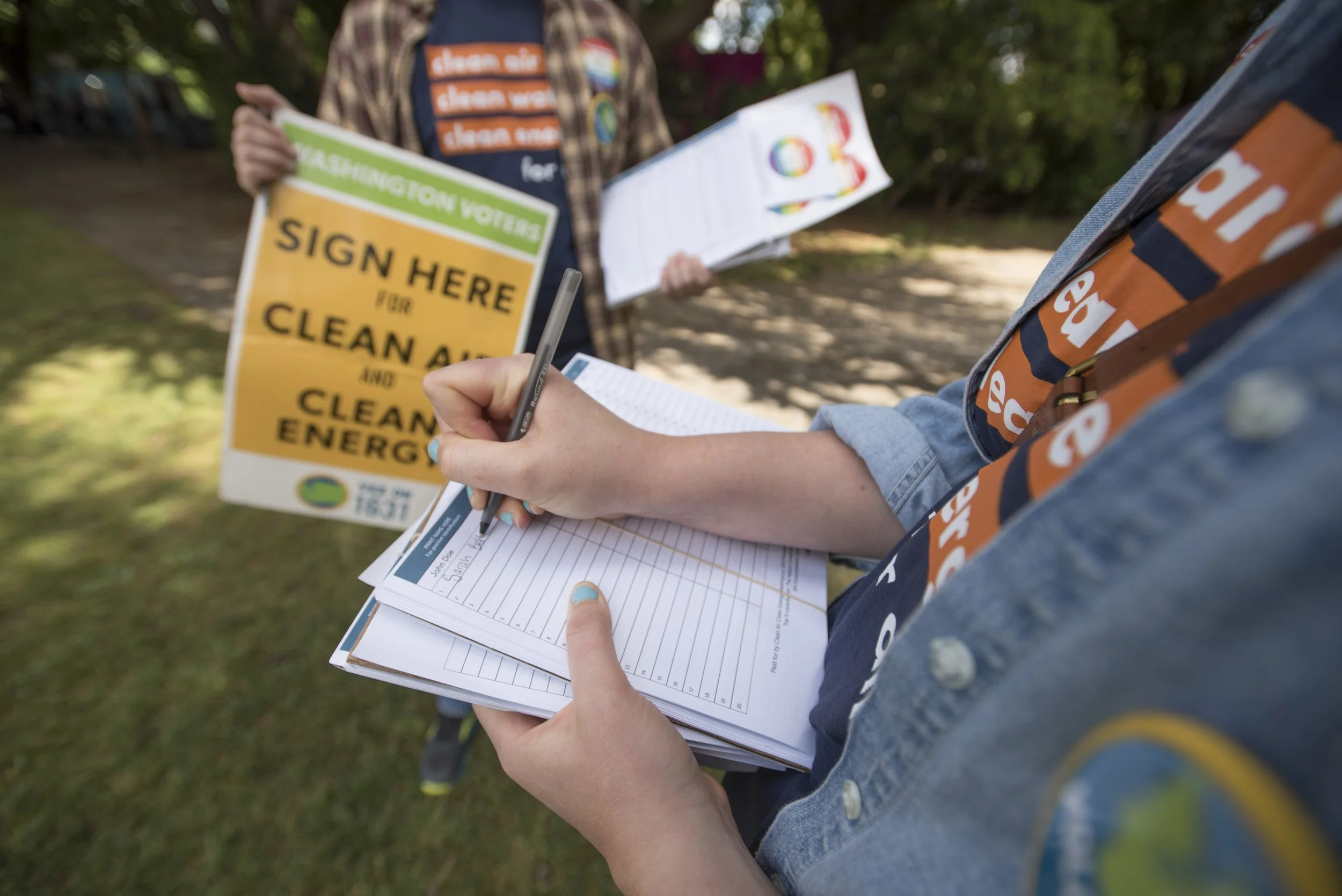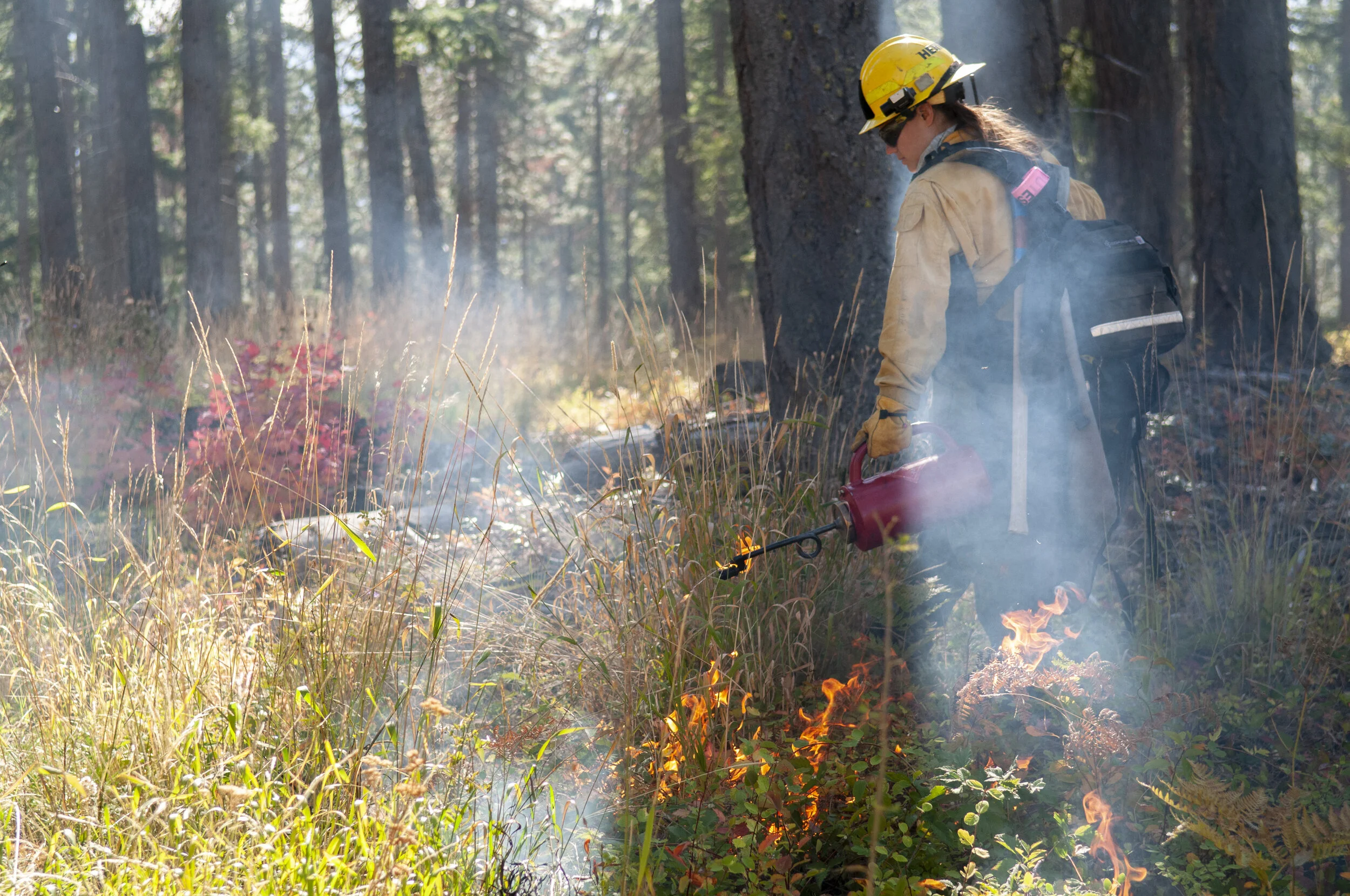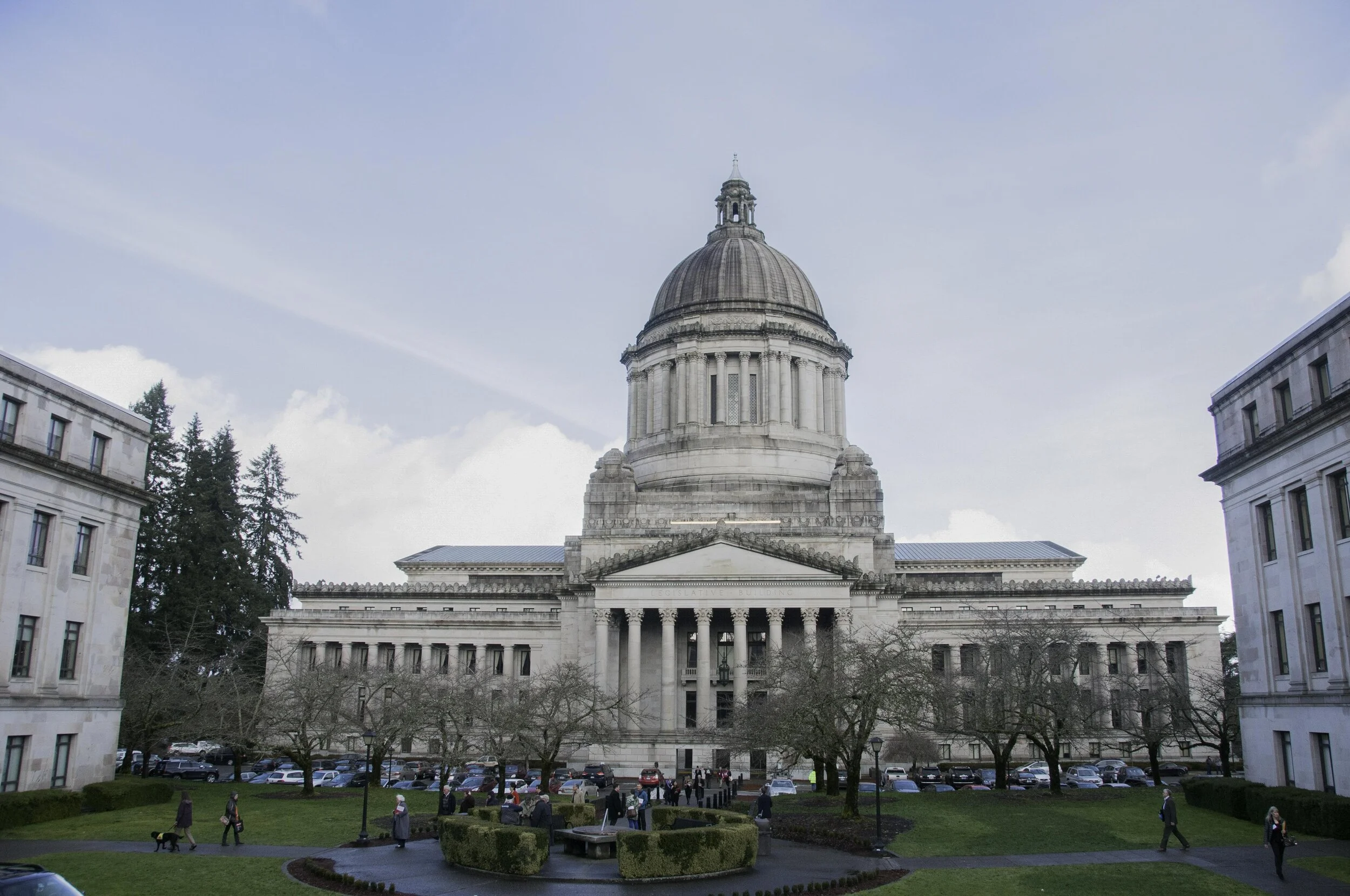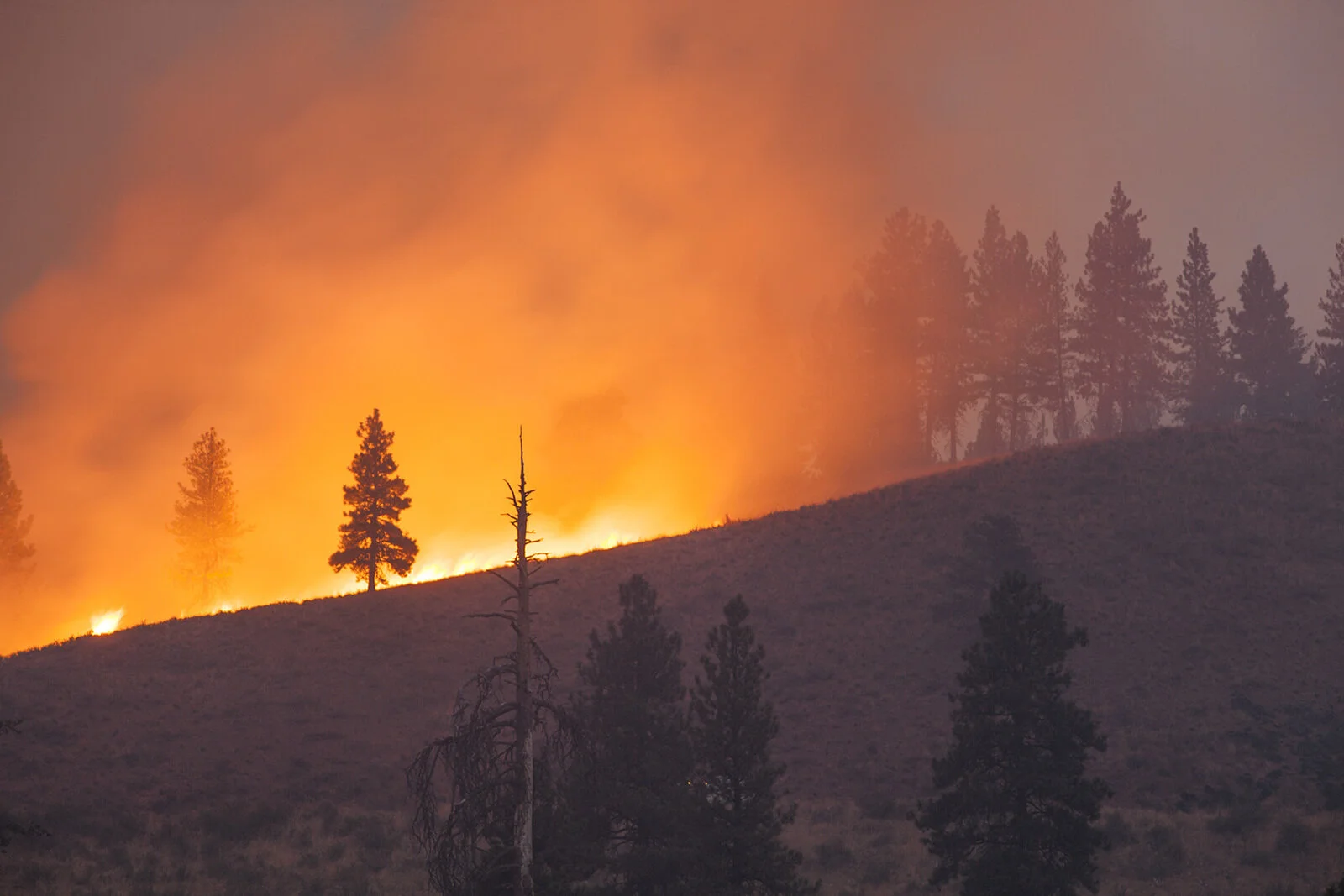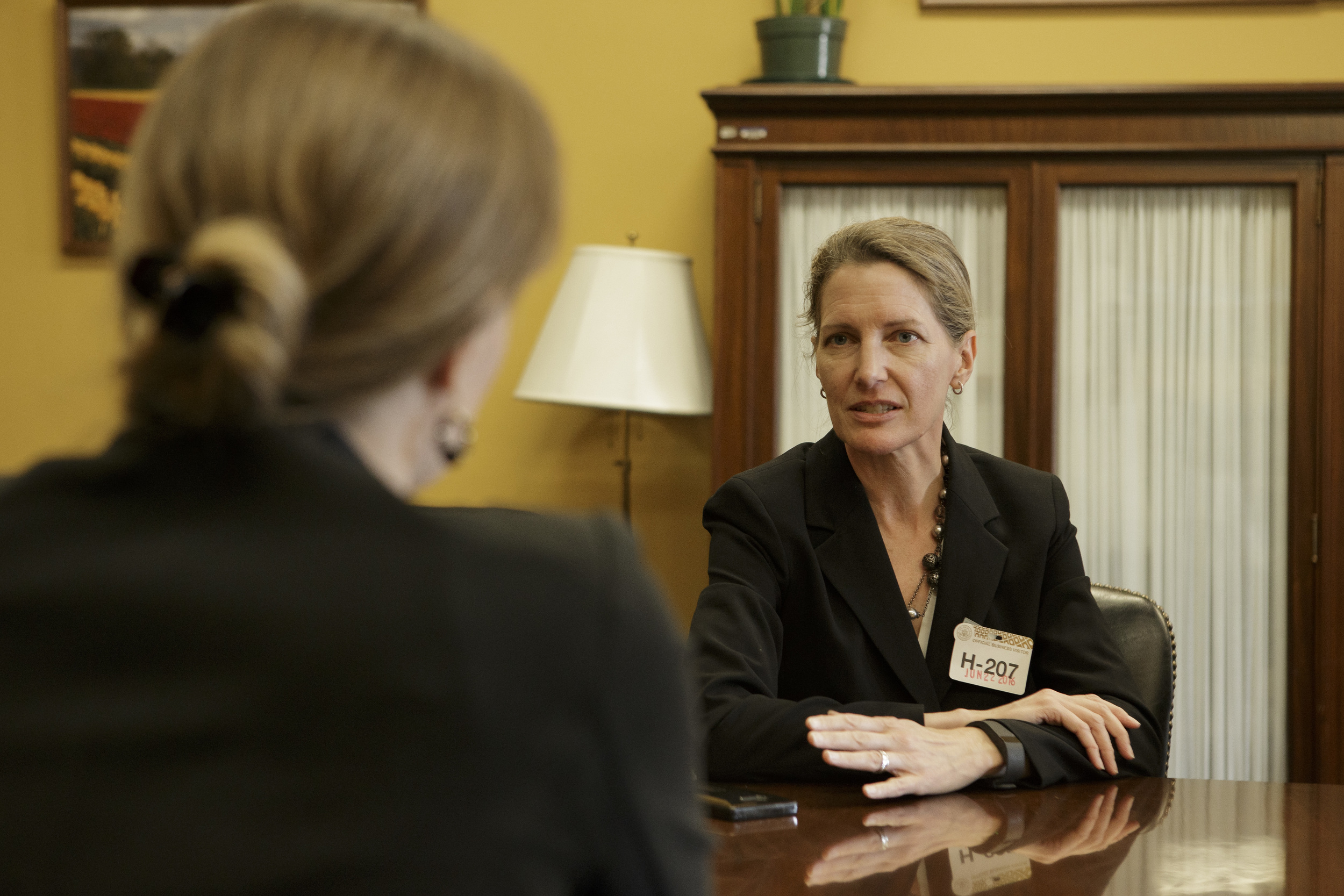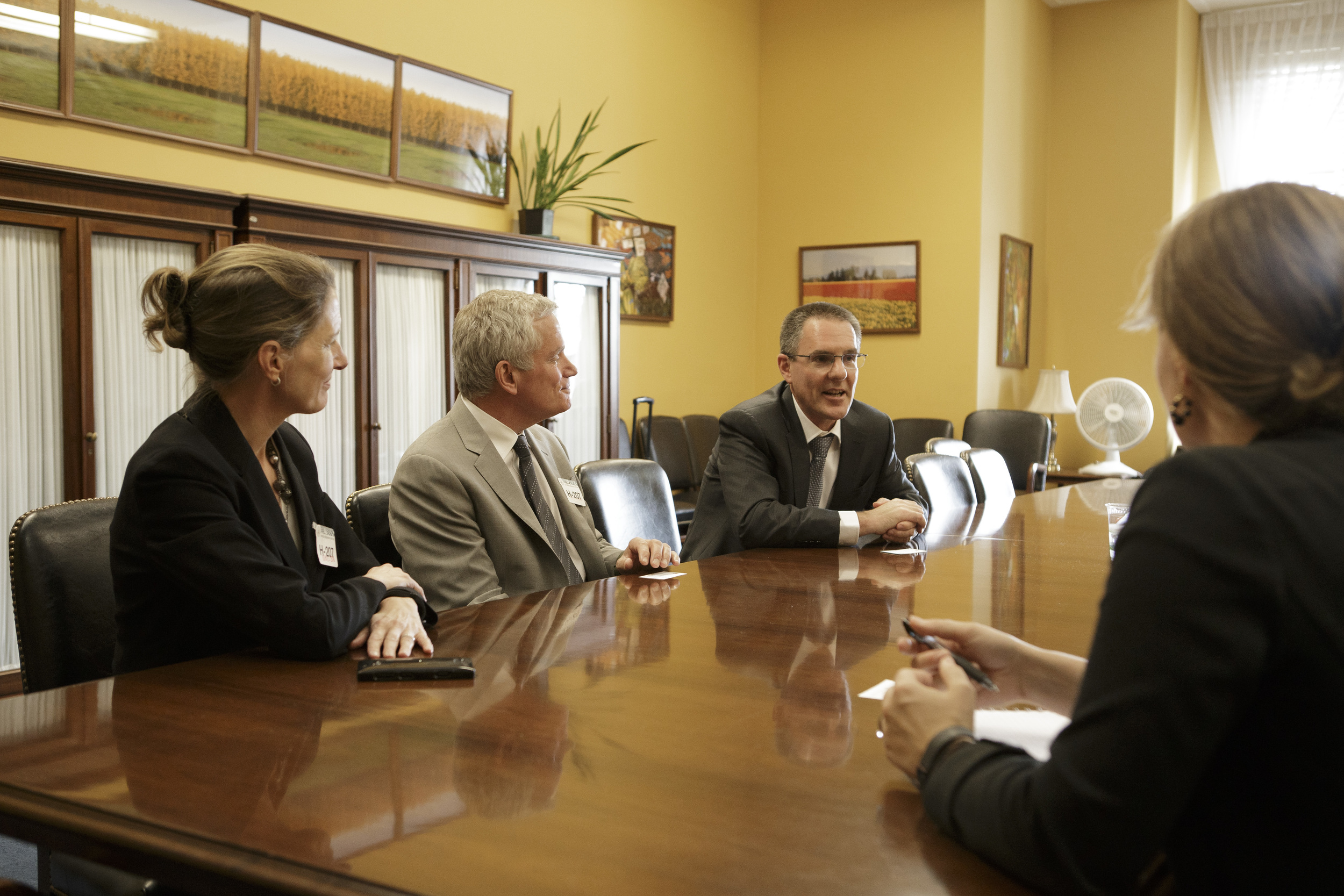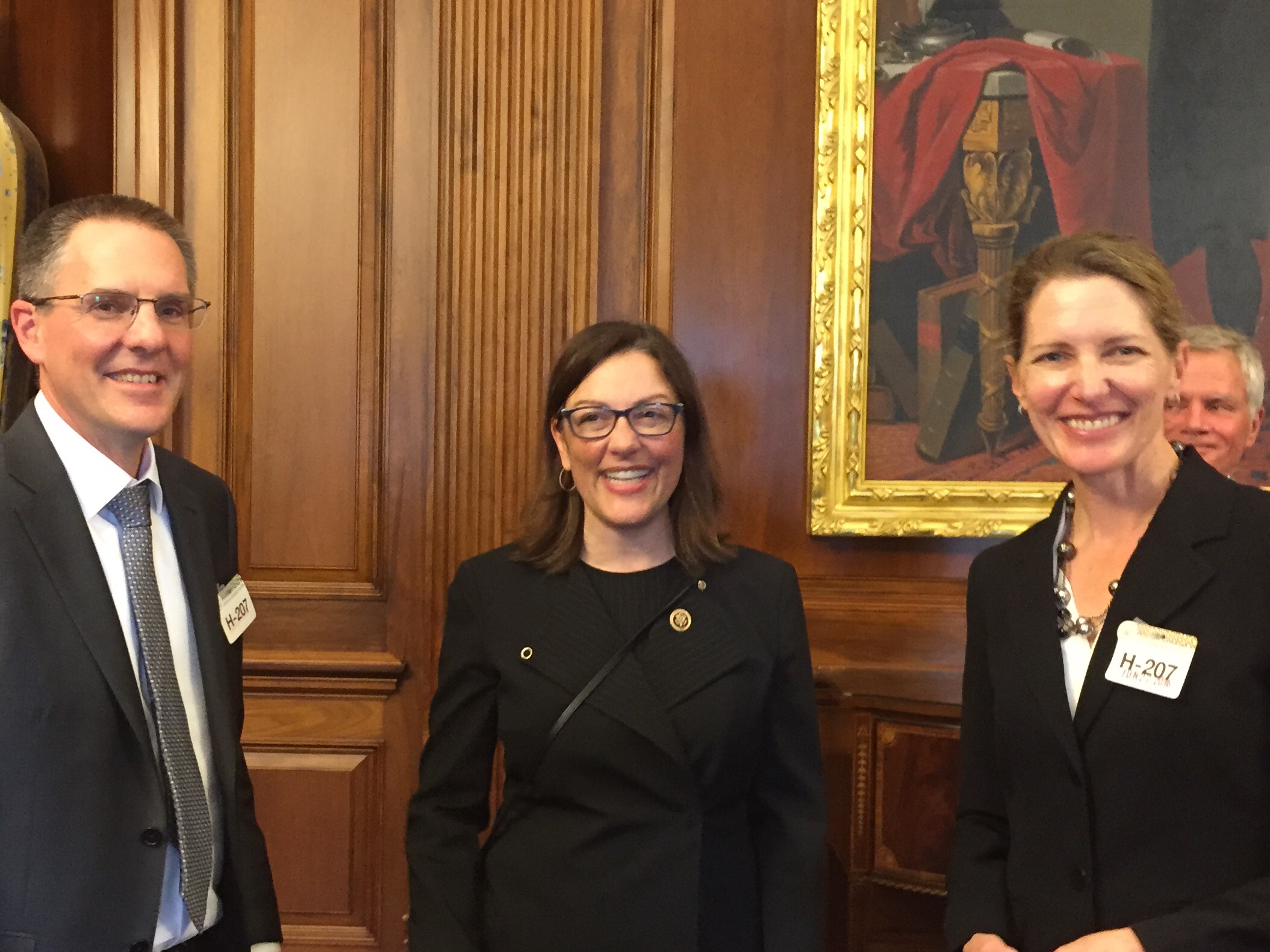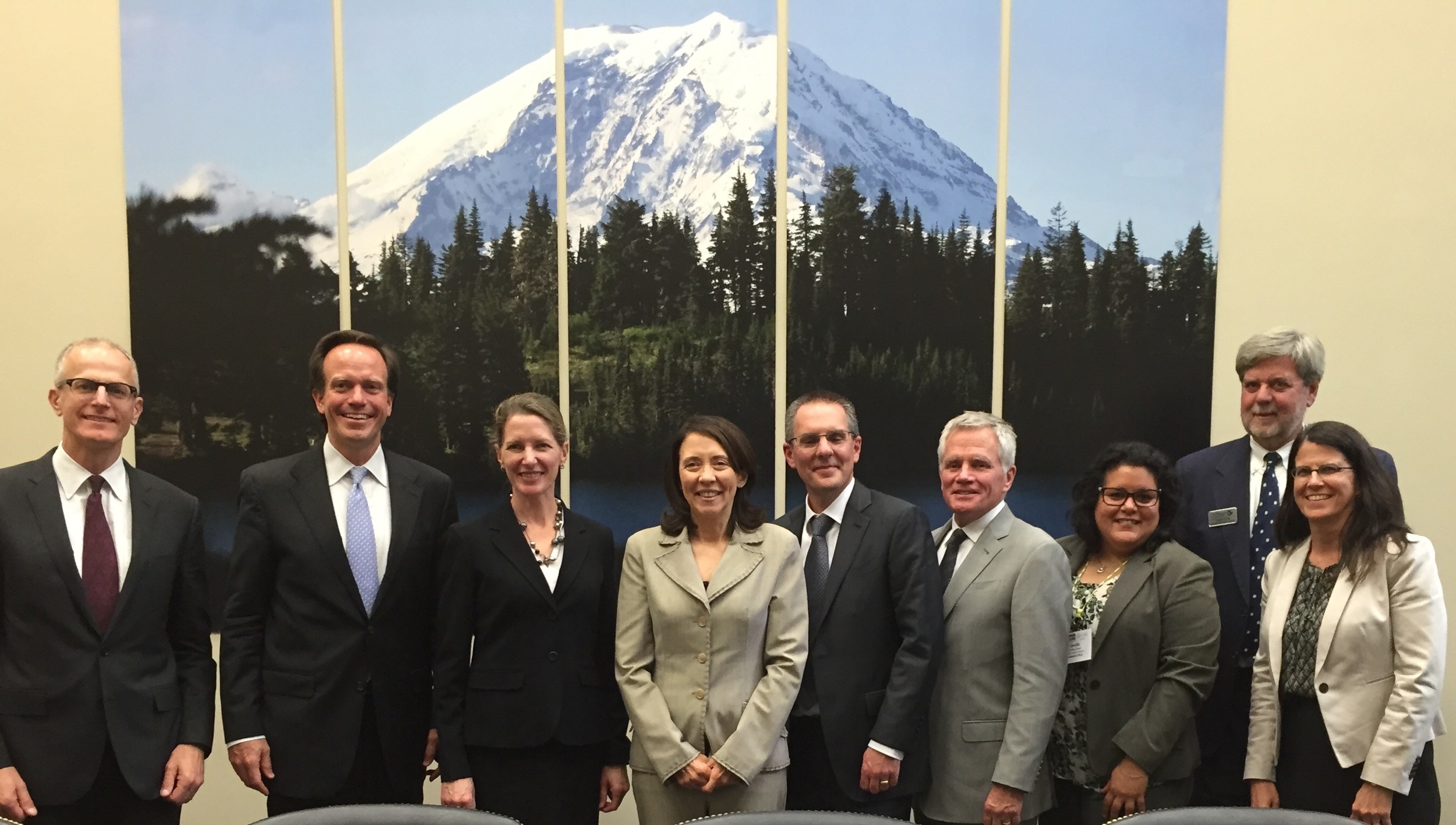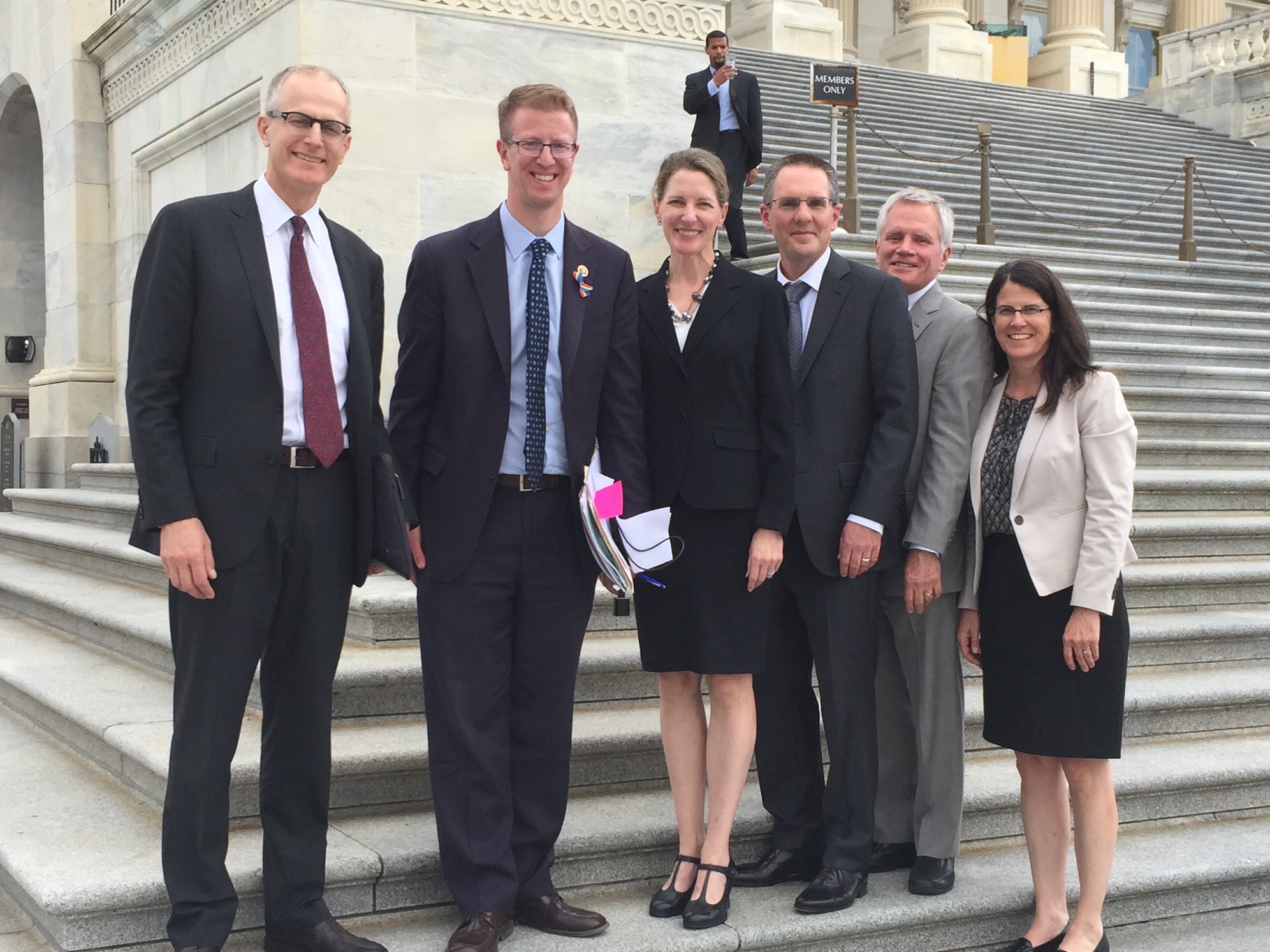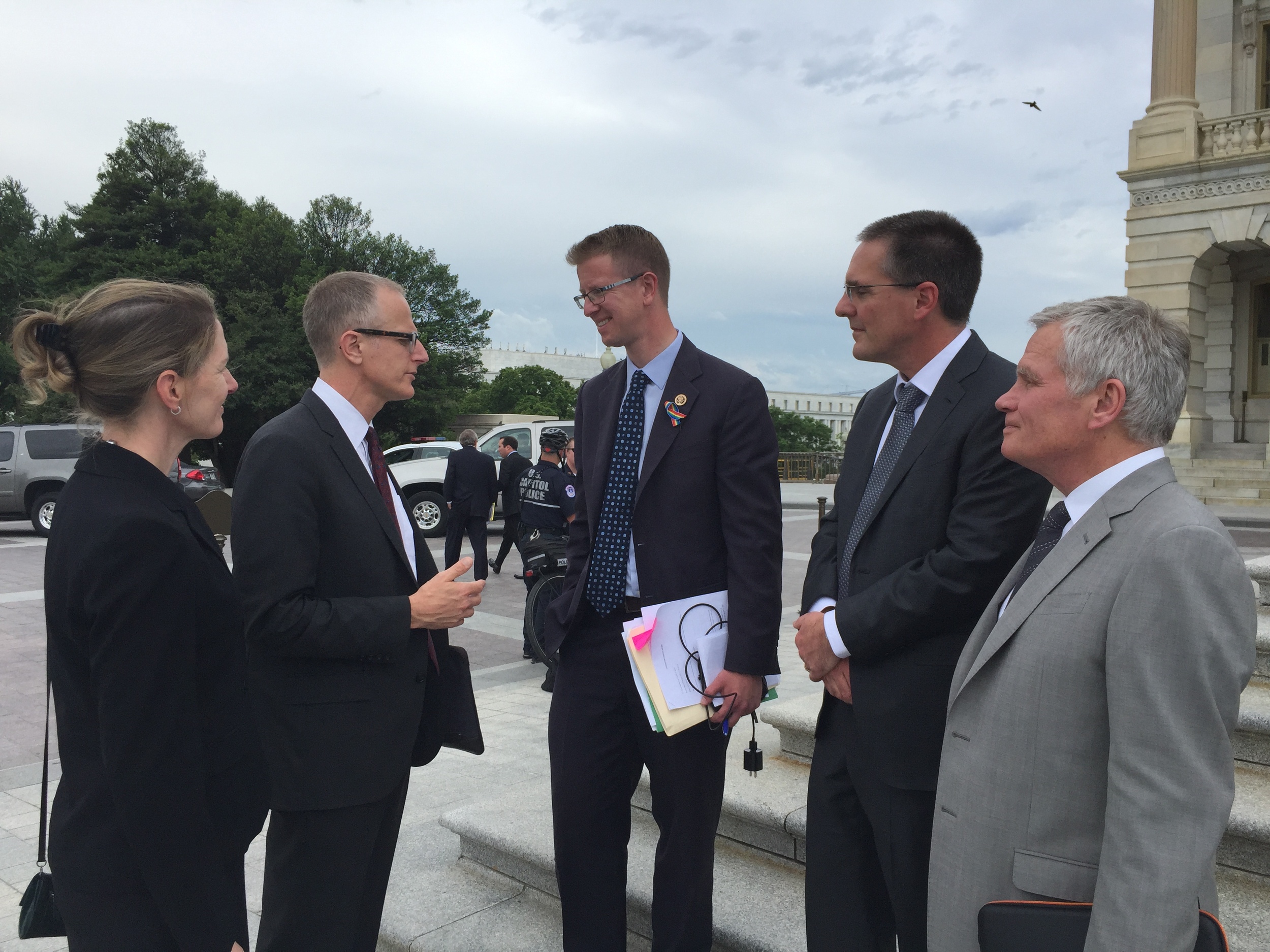The 2024 state legislative session is underway! The Nature Conservancy’s highest priority for the 2024 legislative session is ensuring the success of the Climate Commitment Act (CCA). With revenue from the CCA cap-and-invest program, we have an opportunity this session to make big investments in Natural Climate Solutions, a just transition, Environmental Justice Council recommendations, and investments to attract federal climate funding.
Seattle Times Opinion: Uphold Washington's Climate Commitment Act
Our Commitment to Climate Policy Advocacy & Implementation
U.S. Rep. Kim Schrier Visits Prescribed Burn in Roslyn
Washington Takes Bold Action with Passage of Climate Commitment Act
Shrub-steppe Fire Recovery & Resilience
The Time Is Now for Climate Action
Environmental Justice Task Force Issues Recommendations
David Mendoza, Director of Public Advocacy and Engagement
David Mendoza as our Director of Public Advocacy and Engagement. In this new role, David will work with and lead our government relations team, build coalitions and strengthen the environmental movement in the state, and work to pass policies at the state and federal level that advance our mission and priorities.
The Great American Outdoors Act
Keep Up the Momentum for Common-Sense Climate Policy!
Contact your Legislators to Share Your Support for Dedicated Wildfire Funding
We Support State Funding for Forest Health and Wildfire Preparation
Join us in celebrating Washington's clean energy future
These Are Our Top Policy Priorities for Washington in 2019
Our priorities for the 2019 Legislature touch upon all our work, and all our lives, whether we live in the Palouse, along the coast, or in between. They include tackling climate change, protecting the natural and cultural wealth that makes Washington special, and improving equity in environmental policymaking so that all of us can benefit from cleaner, healthier air and water.
Bringing The Power of Nature to Congress
Written by Kathleen Hebert, Trustee for The Nature Conservancy in Washington
Recently, I joined 148 Conservancy trustees from across the United States and six international programs in Washington, DC, to speak up for the Power of Nature.
In a single day, Conservancy trustees and staff made the case in face-to-face meetings with 175 elected officials. It was unbelievably motivating to take part in such a powerful statement on behalf of the Conservancy and conservation.
Washington Board Chair Byron Bishop, Scott Wyatt and I joined State Director Mike Stevens and Federal Government Relations Director Cathy Baker to meet with five Members of Congress: Sen. Maria Cantwell, Sen. Patty Murray, and Reps. Cathy McMorris-Rodgers, Derek Kilmer and Suzan DelBene. We also met with the chief of staff for Rep. Denny Heck.
I had seen the stunning U.S. Capitol and the Mall before, but it was my first time inside the halls of our Capitol. It was a rare opportunity to join the team from Washington state and key staff from our World Office for an inside look at the progress of key conservation bills for this session of Congress.
This session’s Energy Bill includes provisions that authorize important programs for wildlife protection, recreation on public lands and reauthorization of the Land and Water Conservation Fund (LWCF). It also focuses on critical upgrades to the nation’s energy grid and energy efficiency, which, if enacted, would reduce carbon emissions by as much as 150 million tons per year, or the equivalent of taking 22 million cars off the road. These core measures represent initial steps to address climate change that have bipartisan support.
Advocating on the Hill was both inspiring and exhausting. It was a brief glimpse into the political and time pressures that come with being a Member of Congress. Meetings were quick and to the point. In two cases, to hold our meetings staff had to pull their Representative away from the House Democrat’s spontaneous “sit-in” protest for gun control.
Despite tight schedules, it was clear they were glad to meet with us and listen to our core issues, and they were generous with the time they had. It was gratifying to hear their level of engagement and knowledge about everything from wildfire funding to LWCF.
I was privileged to join in discussions with experienced TNC staff, such as Nature Conservancy Director of Public Policy Lynn Scarlett, who was Deputy Secretary of the Interior under Pres. Bush, and the chair of the Conservancy’s global board, Craig McCaw, who founded McCaw Cellular right here in Washington state. I left feeling optimistic that our Congressional representatives and TNC shared common concerns, desired outcomes and a commitment to take action.
Outside the meetings on the hill, the TNC Leadership Summit was a valuable opportunity to meet trustees from all 50 states and numerous international programs.
I had the chance to hear first-hand from Aurelio Ramos, the Managing Director of our Latin America program, about projects that link reforestation and support for local economies in the Brazilian rainforest, and to find out about the California chapter’s progress in creating new carbon credits for working forests.
A highlight of the general session was an encouraging speech by Sen. Sheldon Whitehouse (D-Rhode Island) about climate change and generating the political will to change. Even casual discussions during breaks gave me new insights into thinking about lands and programs in Washington state and created connections I will continue to foster.
As a first time participant, I came to DC full of energy and enthusiasm, but conscious of my inexperience. After three action-packed days, I left exhausted yet energized, daunted yet more optimistic than ever, and even more grateful to play a small part in TNC’s important work. Being on the Hill reminded me how critical local voices are to informing our elected officials’ actions. They rely on their constituents’ input about public policy.
The Nature Conservancy’s support not only of key historic programs like the Land and Water Conservation Fund, but of evolving issues such as energy grid modernization, provides new ways of thinking about the link between nature and our economy.
Checking in with the East Cascades Steering Committee
Written by James Schroeder, Director of Forest Conservation and Partnerships;
Photographed by Tomas Corsini, Northwest Photographer
Did you know The Nature Conservancy has a Steering Committee of dedicated volunteers focused on the success of our work in the East Cascades Forests? For more than five years now, this group of volunteers has met to learn, discuss, and strategize on how to protect, connect and restore the forests in their backyard. With members from Leavenworth, Cle Elum, Wenatchee, Ellensburg, Yakima, Selah, Seattle, Sammamish, and the Tri-Cities, this group has a broad reach and diverse ideas and experience. One thing that binds them is their love for The Nature Conservancy and their belief in our mission.
From meeting with County Commissioners to lobbying members of Congress, from introducing TNC to their local news media to speaking about our work at their local rotaries, this group has decided to put their energy toward making a difference for TNC in the East Cascades.
At our August meeting, hosted by Larry and Becky Scholl at their beautiful home in Ronald, we discussed the Conservancy¹s management plan for our 48,000 acres forest acquisition. We spoke about the status of wildfires across the state, and what TNC is doing to promote “Fire Adapted Communities,” and we updated them on what they can do to speak up on state and federal policies that could affect our work and their lives. And along with the conversation, we enjoyed wine, dinner and delicious berry pie for dessert!
If you are interested in learning more about the East Cascades Steering Committee, or might be interested in attending a dinner meeting, please let us know!
Orting Honored for Puyallup River Project
City receives the 2015 Municipal Excellence Award
Written by Tom Burgert, Government Relations Associate
Photography by Keith Lazelle
The Association of Washington Cities announced that the Town of Orting is a recipient of a 2015 Municipal Excellence Award. Orting is being honored in the Small City Success category for their groundbreaking work on the Calistoga Setback Levee through new, innovative Floodplains by Design grant program.
The new 1.6-mile Calistoga Setback Levee protects the City of Orting from flooding, widens the Puyallup River channel, restores natural habitat, and promotes salmon recovery.
You may remember that Orting was featured in the Seattle Times last fall. Orting Mayor Joe Pestinger wrote:
“We broke ground on the $17 million project in March 2014. On Nov. 25, the new infrastructure was tested as the Puyallup rose to the same flow that flooded our town in 2009. But this time, the new levee held. It was tested again in December and in January. It worked. The benefits to people are obvious and immediate: safety, community well-being, economic security.”
In the same breath of commending the town of Orting, it is also critical to note that this successful project would not have been possible without the Floodplains by Design program, which funds local projects that substantively reduce flood risks and restore habitat, and that may also improve agricultural viability, water quality and recreational access.
Funding for Floodplains by Design is being considered by the state Legislature right now. The State House proposed $43 million for 12 top ranked projects around the state. The State Senate proposed not funding the program.
Visit our take action page to learn more about how you can get involved in restoring funding for this important program so that more towns like Orting can celebrate successes for public safety.
White House Recognizes Puget Sound, Snohomish County Work
For Healthy Rivers, Farms, Communities in the Face of Climate Change
Written by Cathy Baker, Federal Director of Government Relations
Photograph by John Marshall
On the eve of Earth day, the White House recognized Puget Sound as a model for climate change adaptation, making it one of four places in the U.S. where increased cooperation will aid in preparation for the impacts of climate change –including sea level rise, drought, flooding and wildfires.
The Puget Sound region was showcased in the Resilient Lands and Waters Initiative for outstanding efforts in local, state, federal and tribal partnerships around Puget Sound recovery. The release highlights recent successes and builds momentum for efforts to restore floodplains, preserve farmland and reduce flood risk through the innovative Floodplains by Design program and Snohomish County’s Sustainable Land Strategy.
Read the Seattle Times story for more coverage.
“We are living with the evidence of a changing climate,” said Mike Stevens, Washington State director for The Nature Conservancy. “Longer and more intense winter flooding, low river flows in the summer, and rising seas are affecting both cities and farmlands in the Puget Sound region. “
In Snohomish County, local leaders have developed the Snohomish Sustainable Lands Strategy which brings together Tulalip and Stillaguamish Tribes, government agencies, and local agriculture, and other interests to tackle these issues together.
“Thanks to Sustainable Lands Strategy partners, leadership by Snohomish County Surface Water Management, and the support of the Floodplains by Design program, the county has an assessment of risk and a plan to make the river valleys more resilient in the face of those risks, to the benefit of both people and nature,” Stevens said.
“We are trying to prepare for the future under changing climate conditions,” said Terry Williams of the Tulalip Tribes, a key partner in collaborative efforts underway in Snohomish County. “In the Snohomish River Delta we are getting 500-year-floods more frequently, early spring flooding, early drought. Eighty percent of the delta was diked 100 years ago, and we lost a lot of fish habitat. Mix that with land use that includes forestry, agriculture and urban development—all of that affects the landscape.”
“We’re figuring out how to address these landscapes, these changing conditions, and capitalize on them so we become stronger, rather than weaker,” he said.
“This designation speaks volumes about what we’ve accomplished,” said Tristan Klesick, of Klesick Family Farms. “It’s not easy work, but it’s valuable and important. We have to be stewards of the environment and the economy – we have to have a place for salmon and salamanders, corn, broccoli and milk, homes, schools and hospitals.“
“We look forward to engaging in this opportunity to build upon our efforts to bring government and our communities together to address the natural resource challenges we face,” said Snohomish County Council Chair Dave Somers.
The Nature Conservancy has contributed both science and leadership to this work.







